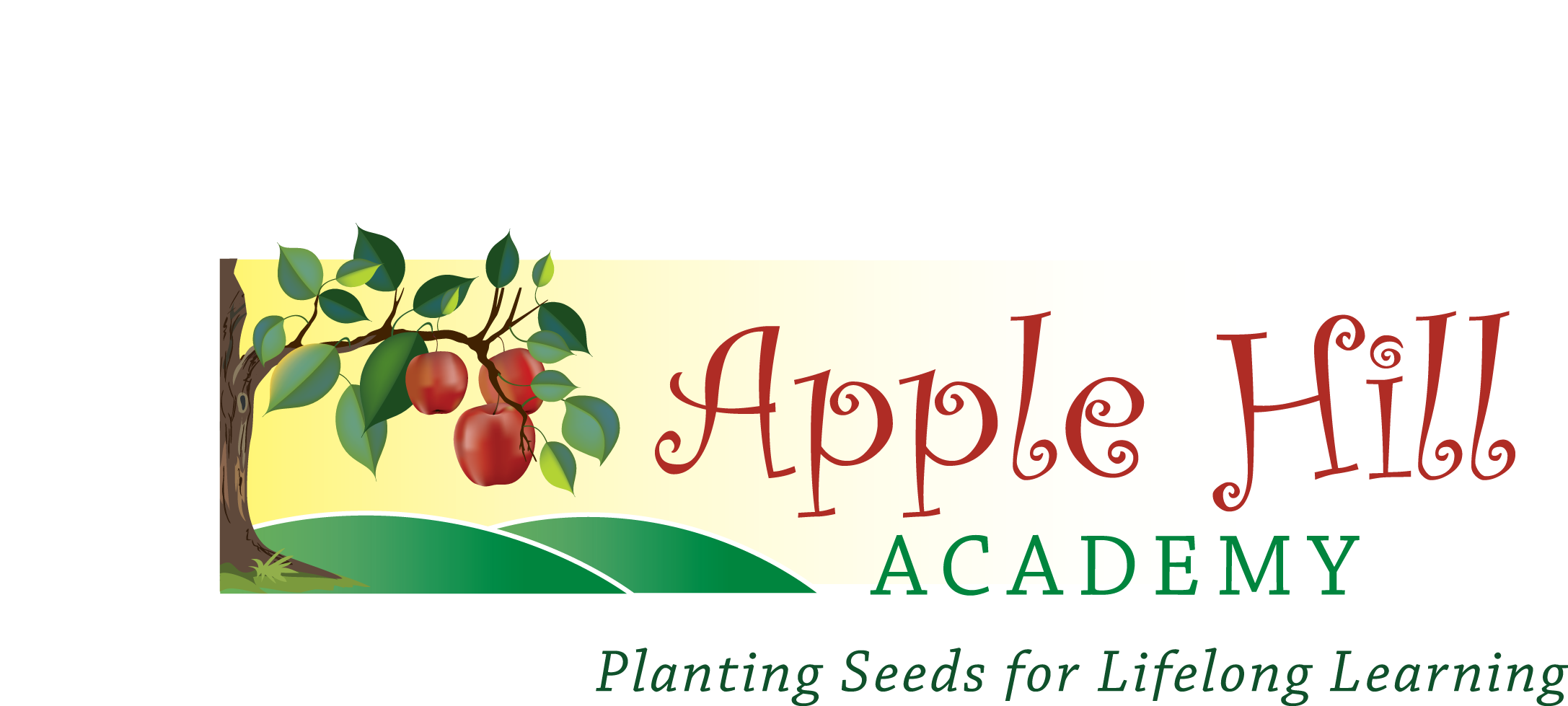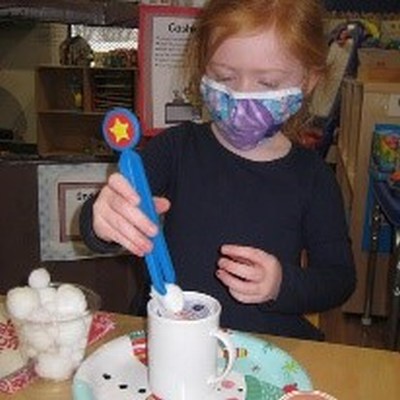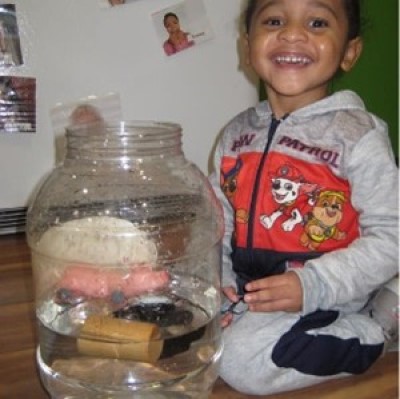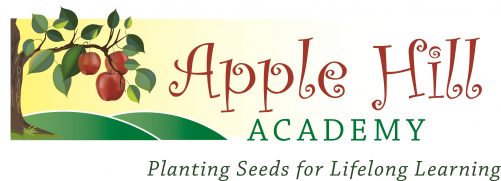There is an old proverbial phrase that tells us to “make lemonade when life gives us lemons.” This advice is used to encourage optimism and a positive can-do attitude in the face of adversity or misfortune. At Apple Hill Academy, during one of the coldest weeks of the year, our daycare children learned how to run an indoor winter lemonade stand business, selling “hot chocolate” (instead of lemonade) using cotton balls for marshmallows, and hot-
Kinesthetic is defined as “relating to a person’s awareness of the position and movement of the parts of the body by means of sensory organs (proprioceptors) in the muscles and joints” and is used in the scholastic field as “learning through a physical activity.” For over twenty years, Apple Hill Academy has been the daycare, preschool and learning center that parents have trusted to look after their children and help them grow. Our students have
Transporting children through a world of discovery is part of what makes Apple Hill Academy so interesting for kids. For toddlers, we use snap bead toys to teach them hand eye coordination. Sometimes they like to sing along with the lessons, and we use songs such as “Wheels on the Bus” to drive the point home! Talking about how people get to where they are going (school bus, ferry boat, or car) is a wonderful way
The children at Apple Hill Academy always enjoy art class. We like to encourage children to create because it helps with fine motor skills, neural development, and problem-solving abilities (not to mention that it’s just plain fun!) Neuroscientist Rex Jung Ph.D. defines creativity as “the production of something both novel and useful.” Rex teaches that the creative state of mind can be accessed and trained by everyone. Other scholars have posed that having a creative mind is
Here, a happy two year old at Apple Hill Academy enjoys performing a hands-on “sink float” experiment. Half the fun was having the kids predict what each object would do: sink or float. Science tells us that the density of an object determines whether it will sink or float in another substance. An object will float if it is less dense than the liquid it is placed in, and will sink if it is denser







